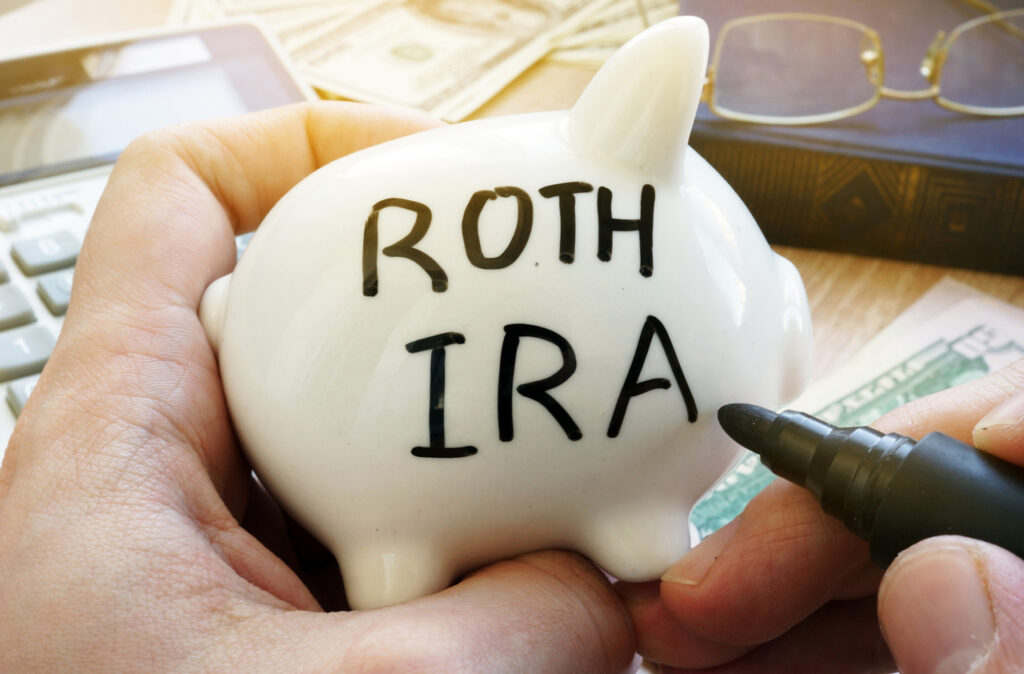Think Advisor’s recent article entitled “Secure Act 2.0, Biden Tax Hike Plans Make Roth IRAs a Crucial Tool” says that Roth IRAs offer a great planning tool, and that the Secure Act 2.0 retirement bill (which is expected to pass) will create an even wider window for Roth IRA planning.
With President Biden’s proposed tax increases, it is wise to leverage Roth conversions and other strategies while tax rates are historically low—and the original Secure Act of 2019 made Roth IRAs particularly valuable for estate planning.
Roth Conversions and Low Tax Rates. Though tax rates for some individuals may increase under the Biden tax proposals, rates for 2021 are currently at historically low levels under the Tax Cuts and Jobs Act passed at the end of 2017. This makes Roth IRA conversions attractive. You will pay less in taxes on the conversion of the same amount than you would have prior to the 2017 tax overhaul. It can be smart to make a conversion in an amount that will let you “fill up” your current federal tax bracket.
Reduce Future RMDs. The money in a Roth IRA is not subject to RMDs. Money contributed to a Roth IRA directly and money contributed to a Roth 401(k) and later rolled over to a Roth IRA can be allowed to grow beyond age 72 (when RMDs are currently required to start). For those who do not need the money and who prefer not to pay the taxes on RMDs, Roth IRAs have this flexibility. No RMD requirement also lets the Roth account to continue to grow tax-free, so this money can be passed on to a spouse or other beneficiaries at your death.
The Securing a Strong Retirement Act, known as the Secure Act 2.0, would gradually raise the age for RMDs to start to 75 by 2032. The first step would be effective January 1, 2022, moving the starting age to 73. If passed, this provision would provide extra time for Roth conversions and Roth contributions to help retirees permanently avoid RMDs.
Tax Diversification. Roth IRAs provide tax diversification. For those with a significant amount of their retirement assets in traditional IRA and 401(k) accounts, this can be an important planning tool as you approach retirement. The ability to withdraw funds on a tax-free basis from your Roth IRA can help provide tax planning options in the face of an uncertain future regarding tax rates.
Estate Planning and the Secure Act. Roth IRAs have long been a super estate planning vehicle because there is no RMD requirement. This lets the Roth assets continue to grow tax-free for the account holder’s beneficiaries. Moreover, this tax-free status has taken on another dimension with the inherited IRA rules under the Setting Every Community Up for Retirement Enhancement (Secure) Act. The legislation eliminates the stretch IRA for inherited IRAs for most non-spousal beneficiaries. As a result, these beneficiaries have to withdraw the entire amount in an inherited IRA within 10 years of inheriting the account. Inherited Roth IRAs are also subject to the 10-year rule, but the withdrawals can be made tax-free by account beneficiaries, if the original account owner had met the 5-year rule prior to his or her death. This makes a Roth IRA an ideal estate planning tool in situations where your beneficiaries are non-spouses who do not qualify as eligible designated beneficiaries.
Reference: Think Advisor (May 11, 2021) “Secure Act 2.0, Biden Tax Hike Plans Make Roth IRAs a Crucial Tool”




